Bretschger, Lucas. "Getting the Costs of Environmental Protection Right: Why Climate Policy Is Inexpensive in the End". Ecological Economics. Accessed January 16, 2025. https://www.sciencedirect.com/...
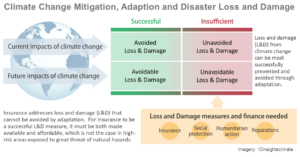
The misconception that stringent climate policies are too costly is widespread among political decision-makers and the public and an often-used argument by governments for sluggish policy making. However, the cost argument ignores the long-term economic benefits of policy changes and is build on the decomposition of environmental impact into separate population, income, and technology effects. This method of decomposing environmental impact calculates costs of climate policy that are far too high. The aggregate economic assessment of climate policies in a holistic economic-ecological system shows economic growth is only initially moderately reduced by a strict climate policy. The cost of climate policy overlooks its long-term benefits, which depend on avoided climate loss and damages.
Posted on 16/01/25
Recent Abstracts
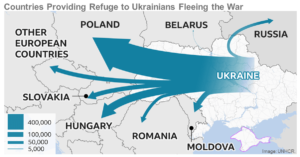
#HospitalityHelps
#HospitalityHelps is a platform that connects families that are fleeing the war in Ukraine with hotels around Europe. Currently focused on key cities in Austria, Czechia, Germany, Hungary, Moldova, Poland, Romania, and Slovakia, the hotels provide free stays for five nights to Ukrainians who show proof of residency in ...
Posted on 03/03/22
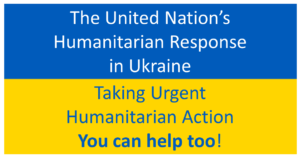
The UN’s Humanitarian Response in Ukraine: How You Can Help
As the conflict in Ukraine continues and the crisis escalates, we may be on the verge of a humanitarian and refugee crisis of historic proportions. Humanitarian needs are surging as more people are displaced by the violence in Ukraine, where as many as 12 million people will need assistance. The UN has committed to s ...
Posted on 02/03/22
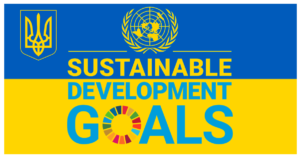
UN System Introduces Online Platform for Reporting on Sustainable Development Goals Indicators in Ukraine
At the end of 2021, Ukraine joined the Open SDG platform for monitoring and reporting on the country's progress in implementing the sustainable development goals (SDGs). With the support of the UNEP Joint SDG Fund, the platform provides access to national SDG implementation indicators for the government and the world c ...
Posted on 01/03/22
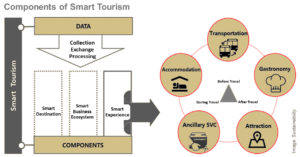
The Smart City Hospitality Framework: Creating a Foundation for Collaborative Reflections on Overtourism That Support Destination Design
The Smart City Hospitality Framework can serve as the foundation for a destination-design-driven approach to urban tourism governance and dealing with overtourism. It is intended to stimulate collaboration on solutions to overtourism and urban tourism development and facilitate discussing and analyzing the relationshi ...
Posted on 26/02/22
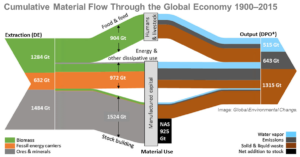
The Circularity Gap Report 2022
We consume 70% more than what the earth can safely replenish and only 8.6% of what we use is returned to the economy. Rather than rectifying this, global circularity decreased from 9.1% in 2018 to 8.6% in 2020. Increasing levels of waste accompany the rapid acceleration of consumption, leaving a massive circularity g ...
Posted on 24/02/22
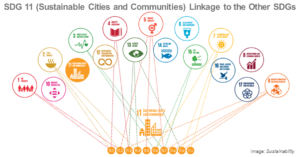
SDG Indicators for Municipalities
Sustainability calls for planning and action that can be implemented and shaped according to measurable criteria. Municipalities play a central role in achieving the sustainability goals set out in the United Nations’ 2030 Agenda – the Sustainable Development Goals (SDGs) – and can contribute significantly to a sustain ...
Posted on 22/02/22
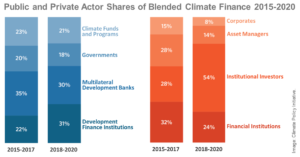
Making the Business Case for Climate Smart Investments: Guidelines for the Tourism Sector
The transition of tourism to net-zero emissions will require significant investment and innovation by the businesses and other stakeholders. UNEP recently launched this initiative to support the urgent transition, which is aimed to address challenges that the private sector faces in financing climate mitigation actions ...
Posted on 19/02/22
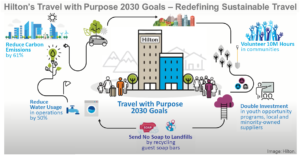
Destination 2030: Global Cities’ Readiness For Tourism Growth
City planning authorities, developers, investors, legislators, and community groups have to collaborate to prepare cities for growth in tourism. Decision-makers create long-term plans involving all stakeholders, where local residents must be at the heart of the infrastructure developments and investments. The decisio ...
Posted on 18/02/22
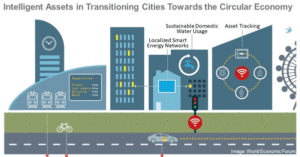
Circular Cities: An Evidence Map of Research between 2010 and 2020
Cities are increasingly transitioning towards the circular economy (CE). They are moving towards a sharing economy and implementing CE strategies to reduce their use of resources and environmental impact. The efforts of municipalities concentrate chiefly on the "lower-level" waste and wastewater management and recycl ...
Posted on 16/02/22
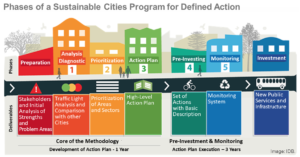
The SDGs in Austrian Cities: A Comparison between 2017 and 2021
Cities play a key role in implementing the UN Sustainable Development Goals (SDGs) and need clear roles and responsibilities on regional policy issues. Transparency, sufficient access to information, and coordination between all stakeholders in the sustainable development of communities are required for the cities to ...
Posted on 14/02/22
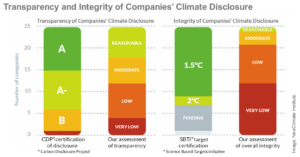
Corporate Climate Responsibility Monitor 2022
Most large companies now have public climate strategies and targets, many of which include pledges that appear to significantly reduce or even eliminate their contributions to global warming. The acceleration and spread of corporate climate pledges makes it increasingly difficult to distinguish between true climate le ...
Posted on 12/02/22
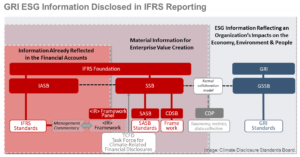
A Business Case for Environment & Society
The need for standardized, comparable information to enhance decision-making by shareholders and stakeholders has accelerated with the great increase in ESG investments, rankings, and exchange-traded funds. Sustainability reporting, which focuses on disclosing companies' environmental, social, and governance (ESG) imp ...
Posted on 11/02/22

Decarbonizing Construction – Guidance for Investors and Developers to Reduce Embodied Carbon
A large part of the construction sector’s emissions come from building products and materials – embodied carbon. Embodied carbon has become the focus of regulatory bodies, making it a risk factor for developers and investors to price into construction projects. This report is for developers and investors, who drive t ...
Posted on 09/02/22
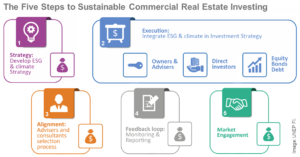
Climate Risk & Commercial Property Values: A Review and Analysis of the Literature
This is a forward-looking climate risk analysis and assessment of the impact of climate risk on commercial property investments through pricing, CapEx or OpEx decisions. The study sought to understand the extent to which real estate markets price in the risks from extreme weather and climate change and the channels th ...
Posted on 07/02/22
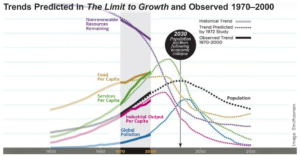
The Real Message of 𝘛𝘩𝘦 𝘓𝘪𝘮𝘪𝘵𝘴 𝘵𝘰 𝘎𝘳𝘰𝘸𝘵𝘩 – A Plea for Forward-Looking Global Policy
The Limits to Growth (LtG) published in April 1972, called for managing the reduction of resources used in economic development. It warned that overshoot will be caused by significant institutional delays in decision-making and showed how the equilibrium between remedial action and ecosystem improvement could be achie ...
Posted on 05/02/22

